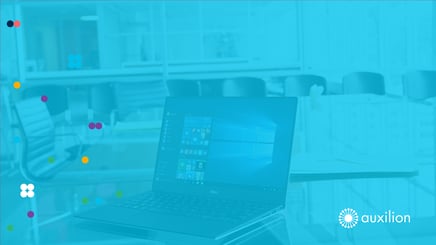The Irish workplace has evolved rapidly, influenced by technological advancements and evolving employee expectations. To thrive in this environment, organisations must adopt strategies that foster adaptability, collaboration, and innovation. This article explores the essential elements and best practices for establishing a modern workplace that meets the needs of today’s workforce.
Core Elements of a Contemporary Work Environment
- Technology Integration: Leverage cloud solutions, collaboration platforms, and mobile applications to streamline workflows and enhance productivity.
- Flexible Work Arrangements: Embrace remote work, flexible hours, and hybrid models to cater to diverse employee preferences.
- Collaborative Spaces: Design both physical and virtual environments that promote teamwork and open communication.
- Data Security: Implement comprehensive security protocols to safeguard sensitive information and ensure compliance with regulations.
- Employee Well-being: Prioritise mental health and work-life balance through wellness initiatives and support resources.
Steps for Successful Implementation
- Evaluate the Current Environment: Conduct a thorough assessment of existing processes, technologies, and employee feedback to identify areas for enhancement.
- Define Clear Objectives: Establish specific, measurable goals that align with your organisation’s vision and address employee needs.
- Identify and Address Challenges: Recognize potential barriers, such as resistance to change or technology gaps, and devise strategies to mitigate them.
- Create a Strategic Roadmap: Develop a detailed plan outlining the steps, resources, and timelines necessary for implementation.
- Conduct Pilot Testing: Implement a trial phase to gather insights and make adjustments before a full-scale rollout.
- Execute the Strategy: Launch the initiative organisation-wide, ensuring comprehensive communication and training for all employees.
Best Practices for Effective Implementation
Assessing Current Workplace Practices
Before making changes, evaluate your current workplace practices. Identify strengths and areas for improvement, and gather feedback from employees to understand their needs and preferences.
Setting Clear Goals and Objectives
Establish clear goals for your modern workplace implementation. Whether it’s enhancing productivity, improving employee satisfaction, or adopting new technologies, having defined objectives will guide your efforts.
Choosing the Right Technology and Tools
Select technologies and tools that align with your workplace goals. This might include collaboration software, project management platforms, or advanced communication systems. Ensure these tools are user-friendly and integrate seamlessly with your existing systems.
Training and Development
Invest in training and development to help employees adapt to new technologies and work practices. Providing support and resources will ease the transition and ensure that everyone is equipped to thrive in the modern workplace.
Challenges in Modern Workplace Implementation
Resistance to Change
One of the biggest hurdles is resistance to change. Employees accustomed to traditional work environments may struggle with new practices or technologies. Address these concerns with clear communication and support.
Technology Integration Issues
Integrating new technologies can be complex. Ensure that your IT infrastructure can support new tools and that employees are trained to use them effectively.
Balancing Flexibility with Accountability
While flexibility is key, balancing it with accountability is crucial. Establish clear expectations and performance metrics to ensure that flexibility does not compromise productivity.
Data Insights: The Impact of Modern Workplace Strategies
| Benefit | Impact on Productivity | Employee Satisfaction |
| Enhanced Communication | Increases collaboration and reduces project turnaround time by up to 25% | Improves team morale and engagement. |
| Flexible Work Options | Boosts productivity by 15% as employees work in their optimal environments. | Increases job satisfaction and retention rates. |
| Data Security Measures | Reduces data breaches by 50% with proactive monitoring. | Enhances trust in the organisation. |
| Wellness Programs | Decreases absenteeism by 30% through improved employee health. | Promotes a positive workplace culture. |
Future Considerations
As organisations navigate the complexities of modern work, they must remain vigilant of the latest trends, including the growing importance of data security, user authentication, and proactive monitoring of user behaviour. Regular updates and training are vital to ensure that employees are equipped to thrive in the modern workplace.
Emerging Trends
The future of the modern workplace will likely see further advancements in AI, automation, and remote work technologies. These trends will continue to shape how we work and interact.
Predictions for the Next Decade
Experts predict that the workplace will become even more flexible and technology-driven. Companies will increasingly adopt emerging technologies for remote collaboration and will use data analytics to tailor work environments to individual needs.
The Role of AI and Automation
AI and automation will play a pivotal role in the future of the workplace. From automating routine tasks to providing data-driven insights, these technologies will enhance efficiency and decision-making.
Establishing a modern workplace is essential for organisations aiming to succeed in today’s dynamic environment. By focusing on technology, flexibility, and employee well-being, companies can create a productive and collaborative atmosphere that meets the diverse needs of their workforce. As the workplace continues to evolve, staying informed about emerging trends and best practices will be crucial for ongoing success.
Related Articles:
- Traditional Vs Modern Workplace
- What Is Microsoft Modern Workplace
- Microsoft Workplace Adoption
- Modern Workplace Services
- Modern Workplace Characteristics
- Modern Workplace Assessment
- Collaboration In Modern Workplaces








